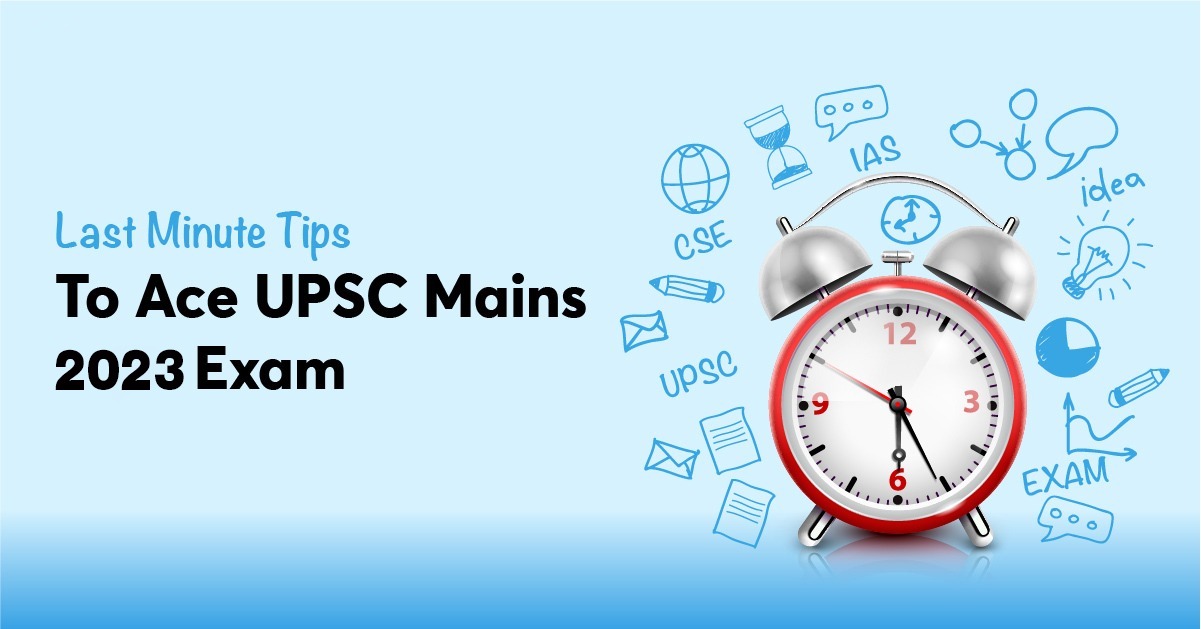
To pass the UPSC Exam, one needs to establish a trustworthy timetable that they can adhere to. Toppers succeed because they are disciplined and strictly adhere to deadlines; avoid creating a demanding study plan that you can't keep up with after two or three days.
For instance, set out 3 to 4 hours to go through books and underline essential passages, and then another hour or two to make notes about what you have read all day. This will let you evaluate your subject knowledge every day.
You are required to read a tonne of study material to get ready for each UPSC phase, so organising your time by breaking the syllabus down into manageable chunks is another essential time management technique.
This will allow you to go through every subject in great depth without leaving out anything important. Additionally, it will give you enough time to revise before moving on to the following subject. By breaking it down into smaller sections, you can complete a significant chunk of the syllabus in fewer hours without getting bored, whether you are studying from the NCERT or another book.
Setting feasible goals is crucial. Setting unattainable goals will not help you succeed in the CSE or any other sector. Instead of creating impossible goals for yourself, take reality into account and choose realistic aims.
Once you've done that, keep working hard every day until you reach your goals by putting your all into it!
Leave the section and go on to the next one if you don't understand anything; this will help you save time. You could have a better chance of understanding it fast if you read it again in the future when your mind is fresh. Additionally, pay attention to weak areas rather than sections you already know extremely well. Remember that you only have a finite amount of time to finish a piece of the syllabus.
One of the most common reasons for failure in the UPSC is stress. Candidates who are unable to handle tension will not perform well on the exam. As a result, it is crucial that you take a rest after studying for about 2-3 hours.
You should resume your preparation after taking a break.
You'll be able to successfully manage your time as well as focus on your academics without being side-tracked. It keeps you from becoming bored, helps you focus more, and will ultimately help you perform well on the exam.
A break is beneficial for managing stress, which is one of the most important factors in planning your UPSC preparation.
Even if it's crucial to finish the complete syllabus within a certain amount of time, revisions are equally crucial. Try to review sometimes so that you won't forget any of the questions or subjects you have already learned.
Try to recap all you have learned thus far after finishing every second topic using your own, concise notes from earlier topics.
This can help you bridge the gap between old and new concepts by allowing you to maintain old chapters in your mind together with the new ones. Time management is the key to managing the study and revision cycles.
We are well aware that the majority of us enjoy using our cellphones, laptops, PCs, and other devices. Although these devices offer much of assistance for preparation, getting too enamoured with them can be a significant barrier. Start setting aside time to use the internet and your devices, and limit your use to those that won't tempt you to become distracted.
In addition to your everyday study schedule, save your weekends for mock tests and answer writing sessions. Writing practise sessions can help you produce clear, error-free replies. A thorough practise exam will help you identify your areas of weakness so you can make improvements.
If not, you won't have time in the future to do things like review the full syllabus again before a test. Effectively divide practise and study time such that none is interrupted by the other.
Another very important tip for UPSC preparation is to maintain a healthy lifestyle. Your health could suffer significantly if you solely pay attention to your studies. Avoid overworking yourself to the point where it causes stress, restless nights, and fatigue the following day.
Keep in mind that the exam will last a full year, and you must regularly study every day. Consistency is needed for a marathon, not a 100-meter race. In addition to keeping, you healthy, exercising, eating well, and getting 7-8 hours of sleep will renew you internally and keep you motivated.